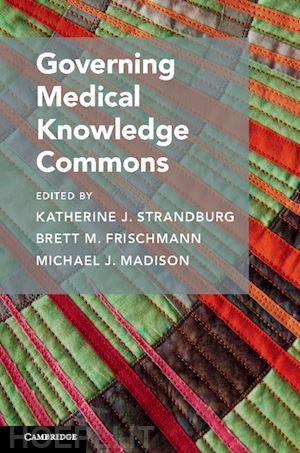Katherine J. Strandburg is the Alfred B. Engelberg Professor of Law at New York University School of Law, where she specializes in patent law, innovation policy, and information privacy law. Her research considers the implications of collaboration, social interactions, and technological change for law and policy in these areas, often from an interdisciplinary perspective. Professor Strandburg is an experienced litigator and has authored several amicus briefs to the Supreme Court and federal appellate courts dealing with patent and privacy law. Prior to her legal career, she was a physicist studying statistical mechanics and phase transitions at Argonne National Laboratory, having received her Ph.D. from Cornell University, New York and conducted postdoctoral research at Carnegie Mellon University, Pennsylvania.
Brett M. Frischmann is the Charles Widger Endowed University Professor in Law, Business and Economics at Villanova University, Pennsylvania, where he teaches Internet law, intellectual property law, and related technology law courses. Frischmann holds an undergraduate degree in astrophysics and graduate degrees in engineering and law. His book Infrastructure: The Social Value of Shared Resources (2012) received the 2012 PROSE award and was reviewed in the Economist and Science. Frischmann is also coauthor of Cyberlaw: Problems of Policy and Jurisprudence in the Information Age (2010), a leading textbook on Internet law.
Michael J. Madison is Professor of Law and Faculty Director of the Innovation Practice Institute at the University of Pittsburgh School of Law. His research and scholarship address intellectual property law and policy, as well as questions concerning the production and distribution of knowledge and innovation. He is the author of more than forty journal articles and book chapters, and the co-author of The Law of Intellectual Property (5th edition, 2017). He was elected to membership in the American Law Institute in 2016. He received his law degree from Stanford University, California and his undergraduate degree from Yale University, Connecticut.












